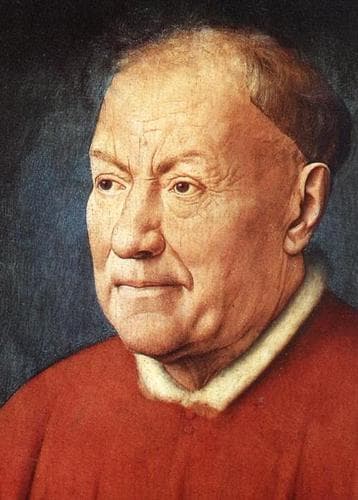
Blessed Nicholas Albergati
Blessed
Feast Day: May 10
Death: May 9, 1443
Biography
Blessed Nicholas Albergati, also known as Niccolú or Nicolú, was born in 1373 in Bologna, Italy. He pursued a legal education and became deeply interested in religious life and contemplation. In 1394, he joined the Carthusian Order, a strict monastic community known for its commitment to solitude and prayer.
Nicholas distinguished himself as a devout and knowledgeable monk, displaying exceptional administrative skills. Consequently, he was appointed as prior of several Carthusian houses, overseeing the daily operations and spiritual guidance of the communities.
In June 1404, Blessed Nicholas Albergati was ordained as a priest. Despite his reluctance, he was chosen to become the bishop of Bologna on 5 January 1417. This marked the beginning of his influential role in the Church hierarchy. Throughout his bishopric, Nicholas proved himself to be a faithful and dedicated shepherd to the people of Bologna.
His talents were not limited to pastoral work; Nicholas also served as a papal diplomat, undertaking several critical missions on behalf of the Church. He was assigned diplomatic responsibilities in France and Lombardy, Italy, where he worked tirelessly to foster peace and resolve conflicts.
In 1418, despite his initial reluctance, Nicholas became the Archbishop of Bologna. His commitment to the faith and his peacemaking abilities caught the attention of the Church, resulting in his elevation to the position of cardinal-priest of Santa Croce in Gerusalemme on 24 May 1426.
Blessed Nicholas Albergati's reputation as a peacemaker grew as he played crucial roles in mediating between the emperor and Pope Martin V, as well as between the French king and Pope Eugene IV. His diplomatic skills and commitment to reconciliation made him an invaluable asset during the Council of Basel and the Council of Ferrara-Florence.
It was during the Council of Ferrara-Florence that Nicholas played a significant role in the negotiations that led to the reunion of the Greek Church with Rome. His dedication to fostering unity and promoting dialogue between different Christian traditions demonstrated his deep devotion to the Church and its mission.
Throughout his life, Blessed Nicholas Albergati was a generous patron of learned men and actively supported academic endeavors. He wrote several theological treatises, contributing to the scholarly understanding of the faith. His encouragement of academia and intellectual pursuits left a lasting impact.
Furthermore, Nicholas held the esteemed position of chief penitentiary to Pope Eugene IV, responsible for overseeing matters relating to the sacrament of reconciliation. Additionally, he served as the archpriest of the Basilica of Saint Mary Major in 1440, further showcasing his entrusted responsibilities within the Church.
Blessed Nicholas Albergati's representation in art portrays him as a Carthusian monk wearing a cardinal's hat and cape over his habit, symbolizing his devotion to contemplative life and his elevated rank within the Church hierarchy.
On 9 May 1443, Blessed Nicholas Albergati passed away in Siena, Italy, due to natural causes. He was laid to rest at the Carthusian monastery in Florence, serving as a testament to his dedication to the monastic way of life. The cultus, or public veneration, of Blessed Nicholas was confirmed on 25 September 1744 by Pope Benedict XIV, recognizing his exemplary life and continued influence as a saintly figure.